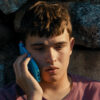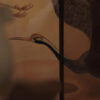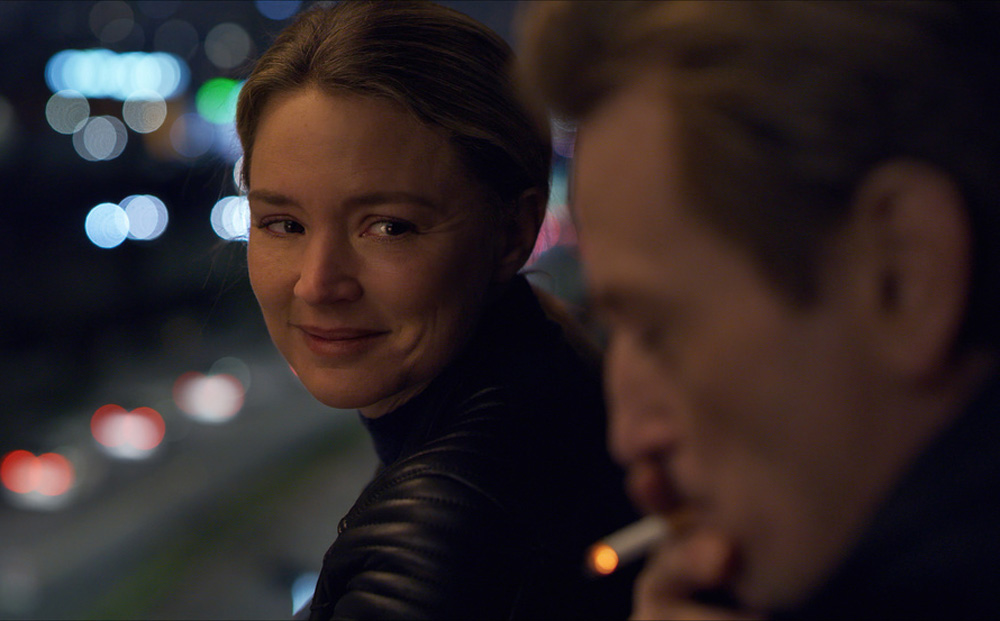Alice Winocour did not know until the first day of post-production on “Revoir Paris” that she would be editing the film right next to the Bataclan, the Parisian theatre where 90 concertgoers were killed as part of a coordinated terrorist attack in November 2015. However, she wouldn’t have been making the film if she hadn’t planned to confront the tragedy head-on after her brother was one of those who was able to escape with his life that terrible night.
“It was so weird, especially because we’re not supposed to edit in that editing room, but the other editing room was not free so we had to move there,” said Winocour. “It was difficult for me [but] we had to get over this to make this resilience film. We shot in real places [as well], and when [we had public scenes like makeshift memorials] people were in the street and they saw the candles we had in front of restaurants, they were asking what is going on, [wondering] if there had been a new attack there, so it was quite difficult, but I think maybe it’s something you see in the film and that you feel that still goes on in the city.”
As it would happen, the attack was once again making headlines in France as filming on “Revoir Paris” commenced when the trial of the terrorists had just gotten underway in the spring of 2022, but even if that weren’t the case, Winocour surely would bring to the surface the conflicting emotions of a country still reckoning with the long-term trauma of such devastating violence while finding the resolve to move on. The director has become one of the most exciting voices of her generation specifically because she’s one of the most intrepid explorers of the impact that extraordinary events have on the psychology of those who live through them with films such as “Disorder,” with Matthias Schoenaerts as a former soldier whose PTSD is stirred by his work as private security, and “Proxima,” which starred Eva Green as an astronaut striving to show her young daughter the sky’s the limit while a trip will mean a year of separation.
The effect of getting so close to her character’s fragile psyches has often been exhilarating, and in “Revoir Paris,” it becomes bracingly intimate as she gives the screen over to Virginie Efira as Mia, who struggles to recollect anything that happened the evening that she went to a cafe and ended up hiding out in a bathroom for safety as gunmen stormed in. When the film is inspired by the experience that both Winocour and her brother had during the Bataclan attack, with the latter unable to be reached by phone after a certain point and having to helplessly watch the news for updates on what was unfolding, Mia is at once a witness and an outsider to the horrific event, only learning of her own experience when she is compelled to meet with other survivors and the relatives and spouses of those who lost their lives. While she is initially curious about how she made it out alive, thanks to an outstretched hand she never saw the owner of, that larger question becomes less important than the connections that she begins to make with others, particularly Thomas (Benoît Magimel) whose birthday celebration at the cafe brought out his loved ones, some of whom he’d never see again.
If what transpires in the bistro is intense, Winocour counters it with the overwhelming sense of goodness that emerges from strangers who can find comfort in one another after fearing they’ll have to walk through the rest of their lives alone and with a epic performance from Efira, who moves effortlessly between stoicism that can act as a pillar of strength for others and inhibiting self-doubt, “Revoir Paris” is tremendously moving. With the film now starting its theatrical run in the States, the filmmaker generously spoke about working with Efira, how sensitivity to the situation portrayed in the film informed how she approached immersing audiences technically and how she hopes to remove barriers with each film she makes.
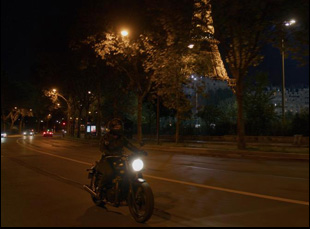
It comes from pieces of my own memories of that tragic night, and national trauma in France that was also definitely a personal trauma. I met a lot of victims of the attack, and psychiatrists specialized in trauma and as I do for all of my movies, it was discovering a new world — the world of not only post-traumatized victims, but about [the direct experience of] victims.
To me, the film had to be like an exploded mirror and [Virginie’s character was] trying to patch all the pieces together. Of course, it seems simple, this inquiry or her looking for the hand of the man [that led her to safety], but there are also all of the other memories of other people because it’s a choral form and we had to recreate cinematically what psychiatrists call the phenomenon of involuntary recurrent memory, which is not classic flashbacks [or the] normal memories of an event, but more a sound or an image that arises [and causes the] real revival of the scene [in one’s mind]. [We could do that] mostly through sound. Sometimes we see in the film that there is a crackling, birthday candles and then you have this fragments of this moment or sometimes it’s only the sound that brings the image like the sound of the rain.
I get the sense sound is generally a starting place for you. What kind of conversations were there with your team?
Sound is so important to me. I don’t know if it has a relationship with [how] I’ve always seen just only from one eye — I see in two dimensions, but sound is important to have a physical experience watching a film, and it’s so immersive. And for this particular film, I worked the sound before the image and we really did a huge amount of work because when you are in the trauma, you disconnect — the image leaves before the sound and sound was the core in my [previous] film “Disorder,” on PTSD, so we had this meeting with the sound engineer [to talk about] the way it will be recorded and all the effects we would do [during the] production because I was at the center in this idea of memory and how not to be in reality any more, but a mental landscape where things are bursting in.
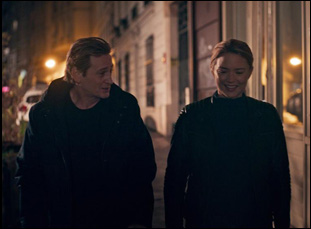
Yeah, I like to talk to psychiatrists for the writing and I worked especially with an American psychiatrist, one who told me about this idea of diamond trauma and all the things happening, just all the links between people that wouldn’t have met if this trauma wouldn’t have happened, coming from very different worlds, so there are love stories and friendship stories, and many things happening, and it’s really what [ended up] being about, everything that you can find behind the trauma.
What was it like to connect with Virginie Efira?
It was an actress I admired for long years and it was a tough part for her because of my personal involvement in the story — [between] the story of my brother and this trial that was going on and all the victims I had met, I think we both had a lot of weight on our shoulders. Of course, it’s a resilience film, but to me it had to be true in a way it was a tribute to the victims, and it’s not about the attack, but it was a tough battle in the idea that she had to be post-traumatized. It’s a strange feeling, not to be in your body anymore and to work. I wanted [Virginie] to really be a kind of naked soul, to do something really different from the parts she had done before, not to wear any makeup and to have this leather jacket. It’s a film full of encounters, and [it’s almost like] she’s an angel visiting other victims, and she had to be in [in her own] world as a ghost, so she had to be present and absent [at the same time] and those first things that are opposite were very difficult to perform [together].
One of my favorite things in your films is the unexpected connections people make, and I wonder does one character lead to thinking about another in terms of building an ensemble?
I wanted [this character] to go through all the layers of French society to meet very different people. Like there is Amadou Mbow, a Senegalese actor who was in “Atlantics,” and it was important that it wasn’t a Senegalese [actor] from France, but someone really coming from another country and as well as different actors that were not part of the same family of actors. It’s something that I really love to recreate in the world of the film — people coming from different worlds at first and they have to find a common language, which [becomes] the language of the film. It’s also what I did with “Proxima,” when I had Russian and German actors coming from theatre, and American actors coming from cinema. It’s really the part of the work that I like the most, to meet people coming from different countries and different worlds to create a world together.
And [with “Revoir Paris”] I think what is really violent in Paris and in all big cities is that there are like two worlds living like next to each other without seeing each other. There is a sentence in the film “if Senegalese and Malian and Sri Lankan people were on strike, it would be impossible to eat in Paris in a restaurant” – and I think it’s maybe the same in [big American cities], that two different worlds not connecting to each other and there are very few occasions to get out of your class or your world. We all lonely in a way, and I think what is incredible in this kind of traumatic experience is that it crushes the barrier between people because we are all equal facing death, so you get brother and sisters. That’s why I wanted all the actors of the film to come from very different worlds.
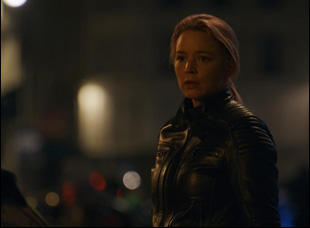
Yeah, I really wanted the audience to feel what it is from the point of view of the victim to be in that kind of attack, and I didn’t want it to have a historical reconstruction, but it was something a bit abstract. I didn’t want to have to have multiple point of view of cameras, as you do for the thrill of an action scene — I wanted the exact opposite of that, just to remain to have a single point of view, which is the point of view of the victims, so we only see the feet of the terrorists and you can hear things, but you don’t see much of it. I had to have a lot of explosions, like it really seemed that would happen in a war zone, but of course I couldn’t do this in a real restaurant in Paris because the owners of restrooms would have been upset, so that’s why we had to recreate an imaginary restaurant in a studio. The first room of the restaurant is a real restaurant in Paris and then we had to recreate a second room with a corridor in a studio, and it’s that room which explodes in the film. It was one week of shooting that scene and we had a lot of preparation, but I thought really we needed that scene.
What’s it been like to get this out into the world?
It’s almost one year from when the film had its first presentation in Cannes, so I feel now it’s like part of my memories in a way. But it’s always like super exciting to travel with a film and discover new reactions. I’m super happy that I had really strong reactions with the movie from very different people and the film was also a success in France with the box office, so I’m really happy for the film and also for my brother because he trusted me for this.
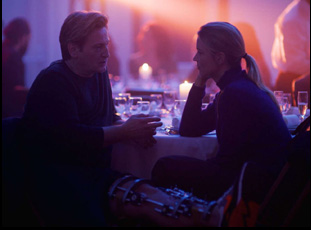
Yeah, there’s a tribute to the victims — and I also always ask my daughter to play [in] my movies and she always told me, “Mommy, if I play one day in a film, it will be with another director.” I wanted her to play the daughter in “Proxima” and she said, “No way.” [laughs] But because my brother was there for the tribute to the victims, she was okay to hold his hand, so it was really moving to have her in my film for the first time, but she was there for him, not for me.
It was also very touching with Nastya Golubeva, the daughter of Yekaterina Golubeva, an actress I really deeply admire, in the scene in which she’s watching TV in the film [learning of the events unfolding]. It’s really a bit of me in the film because it’s the way I lived that night and of course, I told Nastya what had happened to me and when she was performing the scene, she told me, is it possible? I told her you have to hold the hand of a “good friend of yours” and she [asked], is it possible to bring my best friend [to film the scene]? Because I know it is such an important moment for you, I want it to be real, so I want a real hand of a real friend.” So she’s holding the hand of her best friend and it was really, really moving. And I thought it was really so intelligent of her to say that, because this film is all about holding hands, helping each other and finding the right hands to be connected to the real world.
“Revoir Paris” opens on June 23rd in New York at the IFC Center and Film at Lincoln Center, June 23rd in Los Angeles at the Laemmle Royal and in Chicago at the Gene Siskel Film Center and on July 6th in Sedona, Arizona at the Mary D. Fisher Theatre.
